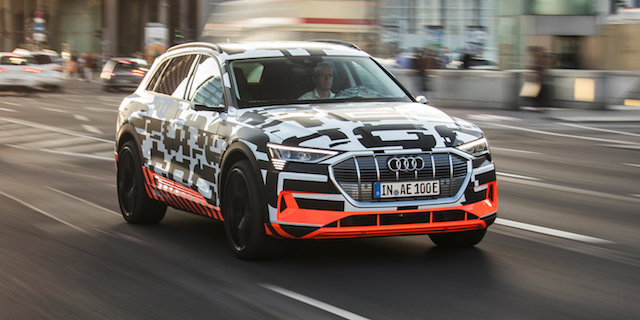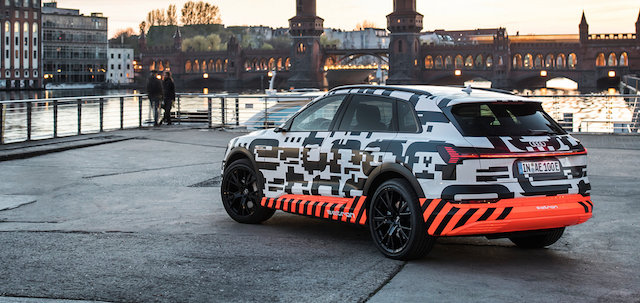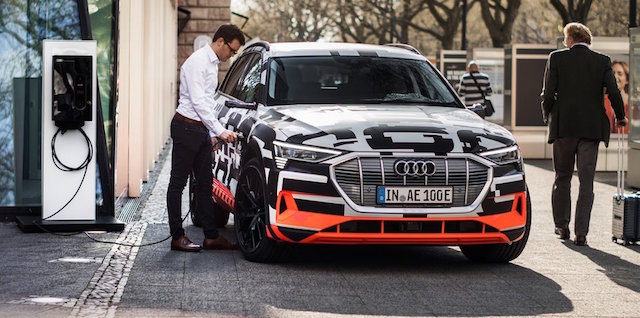
The production version of Audi’s battery-electric e-tron SUV will be able to be fully charged in less than 30 minutes for a driving range of more than 400km.
It will be the first mass-production electric vehicle (EV) capable of being charged with up to 150kW of power when it is launched in Europe late this year and New Zealand in 2019.
The quick charge is via high-power direct current (DC) stations that use the European-standard Combined Charging System (CCS).
Around 200 CCS stations with six charging points each are expected to be available in Europe by the end of this year. Another 200 are to be in place by 2020.
As a comparison, Tesla’s Model X SUV can be fully charged in around 85 minutes at one of its Supercharger 480V DC charging stations.
Audi says the “sophisticated” thermal management system for the e-tron’s 95kWh lithium-ion battery pack is largely responsible for its quick DC charging times.
The e-tron will also be capable of being charged using conventional alternating current (AC) stations. For overnight charging at home, Audi dealers will advise on installing the most efficient technology.
The standard charging system that comes with e-tron will provide up to 2.3kW per hour when connected to a 240V three-point plug and up to 11kW per hour from 400V three-phase power.
Fitting e-tron with an optional second charger doubles power to 22kW. This system has intelligent charging functions, including a home energy management system.
Audi customers in Europe can use a single card from a proprietary service to access charging stations. But from next year wireless Plug and Charge system identifies the EV and unlocks the station.
Like the Tesla Model S and X, the e-tron’s satellite navigation system will be able to plan journeys, including the whereabouts of charging stations. The myAudi smartphone app offers more options.
Audi has been testing e-tron prototypes in real-world conditions and estimates that, once trials are finished, the prototypes will have covered around 5,000,000km. The e-tron will be built at a carbon-neutral plant in Brussels, Belgium.


